127 results found for 'Force'. Prev |1|2|3|4|5|6 | Next | View 100 per page
Low relevance matches: 61 other results may be of interest to you. Show low relevance matches
Forces and Moving - The way objects move depends on a variety of factors including their size and shape ACSSU033 Year 2 Physical Sciences
Forces and Moving - A push or a pull affects how an object moves or changes shape ACSSU076 Year 4 Physical Sciences
Forces and Moving - Forces can be exerted by one object on another through direct contact or from a distance ACSSU117 Year 7 Physical Sciences
Forces and Machines - Change to an object’s motion is caused by unbalanced forces, including Earth’s gravitational attraction, acting on the object ACSSU229 Year 10 Physical Sciences
Forces and Motion - The motion of objects can be described and predicted using the laws of physics ACSCH018 Year 11 Chemical fundamentals
Properties and structure of atoms - Atoms can be modelled as a nucleus surrounded by electrons in distinct energy levels, held together by electrostatic forces of attraction between the nucleus and electrons; atoms can be represented using electron shell diagrams (all electron shells or val ACSCH032 Year 11 Chemical fundamentals
Properties and structure of materials - The characteristic properties of metals (for example, malleability, thermal conductivity, electrical conductivity) are explained by modelling metallic bonding as a regular arrangement of positive ions (cations) made stable by electrostatic forces of attra ACSCH056 Year 11 Molecular interactions and reactions
Intermolecular forces and gases - The shapes of molecules can be explained and predicted using three dimensional representations of electrons as charge clouds and using valence shell electron pair repulsion (VSEPR) theory ACSCH059 Year 11 Molecular interactions and reactions
Intermolecular forces and gases - Data from chromatography techniques (for example, thin layer, gas and highperformance liquid chromatography) can be used to determine the composition and purity of substances; the separation of the components is caused by the variation of strength of the ACSCH060 Year 11 Molecular interactions and reactions
Intermolecular forces and gases - The behaviour of gases, including the qualitative relationships between pressure, temperature and volume, can be explained using kinetic theory ACSCH065 Year 11 Molecular interactions and reactions
Aqueous solutions and acidity - The solubility of substances in water, including ionic and molecular substances, can be explained by the intermolecular forces between species in the substances and water molecules, and is affected by changes in temperature ACSPH060 Year 11 Linear Motion and Waves
Linear motion and force - Uniformly accelerated motion is described in terms of relationships between measurable scalar and vector quantities, including displacement, speed, velocity and acceleration ACSPH061 Year 11 Linear Motion and Waves
Linear motion and force - Representations, including graphs and vectors, and/or equations of motion, can be used qualitatively and quantitatively to describe and predict linear motion ACSPH062 Year 11 Linear Motion and Waves
Linear motion and force - Vertical motion is analysed by assuming the acceleration due to gravity is constant near Earth’s surface ACSPH063 Year 11 Linear Motion and Waves
Linear motion and force - Newton’s Three Laws of Motion describe the relationship between the force or forces acting on an object, modelled as a point mass, and the motion of the object due to the application of the force or forces ACSPH064 Year 11 Linear Motion and Waves
Linear motion and force - Momentum is a property of moving objects; it is conserved in a closed system and may be transferred from one object to another when a force acts over a time interval ACSPH065 Year 11 Linear Motion and Waves
Linear motion and force - Energy is conserved in isolated systems and is transferred from one object to another when a force is applied over a distance; this causes work to be done and changes to kinetic and/or potential energy of objects ACSPH066 Year 11 Linear Motion and Waves
Linear motion and force - Collisions may be elastic and inelastic; kinetic energy is conserved in elastic collisions ACSPH102 Year 12 Gravity and electromagnetism
Electromagnetism - Electrostatically charged objects exert a force upon one another; the magnitude of this force can be calculated using Coulomb’s Law ACSPH108 Year 12 Gravity and electromagnetism
Electromagnetism - Magnets, magnetic materials, moving charges and currentcarrying wires experience a force in a magnetic field; this force is utilised in DC electric motors ACSPH100 Year 12 Gravity and electromagnetism
Gravity and motion - When an object experiences a net force of constant magnitude perpendicular to its velocity, it will undergo uniform circular motion, including circular motion on a horizontal plane and around a banked track ACSCH031 Year 11 Chemical fundamentals
Properties and structure of materials - The properties of ionic compounds (for example, high melting point, brittleness, ability to conduct electricity when liquid or in solution) are explained by modelling ionic bonding as ions arranged in a crystalline lattice structure with forces of attract ACSPH098 Year 12 Gravity and electromagnetism
Gravity and motion - The vector nature of the gravitational force can be used to analyse motion on inclined planes by considering the components of the gravitational force (that is, weight) parallel and perpendicular to the plane ACSPH103 Year 12 Gravity and electromagnetism
Electromagnetism - A positively charged body placed in an electric field will experience a force in the direction of the field; the strength of the electric field is defined as the force per unit charge ACSPH104 Year 12 Gravity and electromagnetism
Electromagnetism - Point charges and charged objects produce an electric field in the space that surrounds them; field theory attributes the electrostatic force on a point charge or charged body to the presence of an electric field ACSPH105 Year 12 Gravity and electromagnetism
Electromagnetism - When a charged body moves or is moved from one point to another in an electric field and its potential energy changes, work is done on or by the field
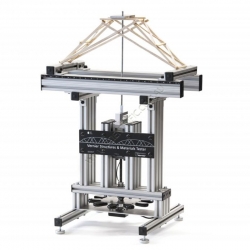
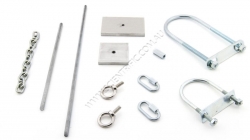
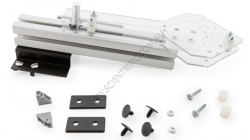
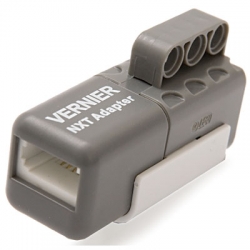
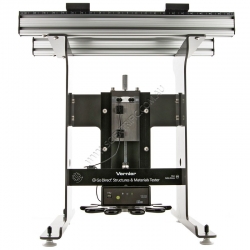

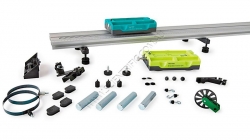

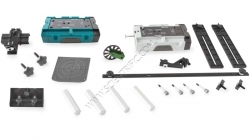
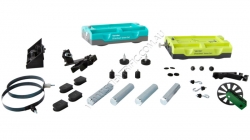

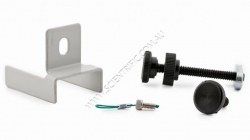
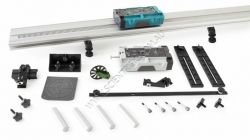
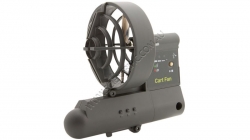
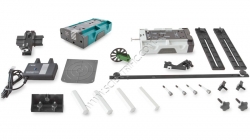



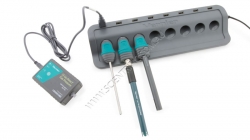


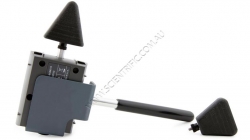

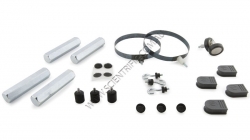

127 results found for 'Force'. Prev |1|2|3|4|5|6 | Next | View 100 per page
Low relevance matches: 61 other results may be of interest to you. Show low relevance matches
Curriculum resources related to 'Force'
ACSSU005 Foundation Physical SciencesForces and Moving - The way objects move depends on a variety of factors including their size and shape ACSSU033 Year 2 Physical Sciences
Forces and Moving - A push or a pull affects how an object moves or changes shape ACSSU076 Year 4 Physical Sciences
Forces and Moving - Forces can be exerted by one object on another through direct contact or from a distance ACSSU117 Year 7 Physical Sciences
Forces and Machines - Change to an object’s motion is caused by unbalanced forces, including Earth’s gravitational attraction, acting on the object ACSSU229 Year 10 Physical Sciences
Forces and Motion - The motion of objects can be described and predicted using the laws of physics ACSCH018 Year 11 Chemical fundamentals
Properties and structure of atoms - Atoms can be modelled as a nucleus surrounded by electrons in distinct energy levels, held together by electrostatic forces of attraction between the nucleus and electrons; atoms can be represented using electron shell diagrams (all electron shells or val ACSCH032 Year 11 Chemical fundamentals
Properties and structure of materials - The characteristic properties of metals (for example, malleability, thermal conductivity, electrical conductivity) are explained by modelling metallic bonding as a regular arrangement of positive ions (cations) made stable by electrostatic forces of attra ACSCH056 Year 11 Molecular interactions and reactions
Intermolecular forces and gases - The shapes of molecules can be explained and predicted using three dimensional representations of electrons as charge clouds and using valence shell electron pair repulsion (VSEPR) theory ACSCH059 Year 11 Molecular interactions and reactions
Intermolecular forces and gases - Data from chromatography techniques (for example, thin layer, gas and highperformance liquid chromatography) can be used to determine the composition and purity of substances; the separation of the components is caused by the variation of strength of the ACSCH060 Year 11 Molecular interactions and reactions
Intermolecular forces and gases - The behaviour of gases, including the qualitative relationships between pressure, temperature and volume, can be explained using kinetic theory ACSCH065 Year 11 Molecular interactions and reactions
Aqueous solutions and acidity - The solubility of substances in water, including ionic and molecular substances, can be explained by the intermolecular forces between species in the substances and water molecules, and is affected by changes in temperature ACSPH060 Year 11 Linear Motion and Waves
Linear motion and force - Uniformly accelerated motion is described in terms of relationships between measurable scalar and vector quantities, including displacement, speed, velocity and acceleration ACSPH061 Year 11 Linear Motion and Waves
Linear motion and force - Representations, including graphs and vectors, and/or equations of motion, can be used qualitatively and quantitatively to describe and predict linear motion ACSPH062 Year 11 Linear Motion and Waves
Linear motion and force - Vertical motion is analysed by assuming the acceleration due to gravity is constant near Earth’s surface ACSPH063 Year 11 Linear Motion and Waves
Linear motion and force - Newton’s Three Laws of Motion describe the relationship between the force or forces acting on an object, modelled as a point mass, and the motion of the object due to the application of the force or forces ACSPH064 Year 11 Linear Motion and Waves
Linear motion and force - Momentum is a property of moving objects; it is conserved in a closed system and may be transferred from one object to another when a force acts over a time interval ACSPH065 Year 11 Linear Motion and Waves
Linear motion and force - Energy is conserved in isolated systems and is transferred from one object to another when a force is applied over a distance; this causes work to be done and changes to kinetic and/or potential energy of objects ACSPH066 Year 11 Linear Motion and Waves
Linear motion and force - Collisions may be elastic and inelastic; kinetic energy is conserved in elastic collisions ACSPH102 Year 12 Gravity and electromagnetism
Electromagnetism - Electrostatically charged objects exert a force upon one another; the magnitude of this force can be calculated using Coulomb’s Law ACSPH108 Year 12 Gravity and electromagnetism
Electromagnetism - Magnets, magnetic materials, moving charges and currentcarrying wires experience a force in a magnetic field; this force is utilised in DC electric motors ACSPH100 Year 12 Gravity and electromagnetism
Gravity and motion - When an object experiences a net force of constant magnitude perpendicular to its velocity, it will undergo uniform circular motion, including circular motion on a horizontal plane and around a banked track ACSCH031 Year 11 Chemical fundamentals
Properties and structure of materials - The properties of ionic compounds (for example, high melting point, brittleness, ability to conduct electricity when liquid or in solution) are explained by modelling ionic bonding as ions arranged in a crystalline lattice structure with forces of attract ACSPH098 Year 12 Gravity and electromagnetism
Gravity and motion - The vector nature of the gravitational force can be used to analyse motion on inclined planes by considering the components of the gravitational force (that is, weight) parallel and perpendicular to the plane ACSPH103 Year 12 Gravity and electromagnetism
Electromagnetism - A positively charged body placed in an electric field will experience a force in the direction of the field; the strength of the electric field is defined as the force per unit charge ACSPH104 Year 12 Gravity and electromagnetism
Electromagnetism - Point charges and charged objects produce an electric field in the space that surrounds them; field theory attributes the electrostatic force on a point charge or charged body to the presence of an electric field ACSPH105 Year 12 Gravity and electromagnetism
Electromagnetism - When a charged body moves or is moved from one point to another in an electric field and its potential energy changes, work is done on or by the field
Products related to 'Force'

Vernier Structures & Materials Tester
Discontinued
VERNIER STRUCTURES AND MATERIALS TESTER Evaluate the strength of model bridges and engineered structures by measuring the applied load with the Vernier Structures and Materials Tester. Utilizing both load and displacement sensors allows students to evaluate properties of ... Order code: VSMT
VERNIER STRUCTURES AND MATERIALS TESTER Evaluate the strength of model bridges and engineered structures by measuring the applied load with the Vernier Structures and Materials Tester. Utilizing both load and displacement sensors allows students to evaluate properties of ... Order code: VSMT

Vernier Structure and Materials Tester (VSMT) Tackle Kit
VERNIER VSMT TACKLE KIT
This Tackle Kit is supplied with Vernier Structures and Materials Testers and includes accessories to make it quick and easy to load bridges, materials, beams and structures of varying sizes and shapes.
It may be useful to purchase an additional...
Order code: VSMT-TK

Vernier Truss Tester Accessory
VERNIER TRUSS TESTER ACCESSORY
The Truss Tester Accessory for Vernier Structures and Materials Testers provides a fast and effective method to evaluate the strength of trusses. Students use the tester to collect data that allows them to evaluate parameters affecting truss...
Order code: VSMT-TRUSS

Vernier NXT Sensor Adapter
Discontinued - only 2 in stock
VERNIER NXT SENSOR ADAPTOR.
The Vernier NXT Sensor Adapter allows Vernier sensors to work on the LEGO® MINDSTORMS® NXT and EV3 robotics system. Listed below are compatible sensors for measuring everything from temperature, force, light level, UV level, pH and more.
• C...
Order code: BTA-NXT

Vernier Go Direct Structures & Materials Tester
VERNIER GO DIRECT STRUCTURES AND MATERIALS TESTER
Vernier's Go Direct Structures and Materials Tester is an excellent tool for teaching engineering concepts and design processes. Students evaluate truss, bridge or other structure strength by measuring the applied load and...
Order code: GDX-VSMT



Vernier Go Direct CFA Motor Accessory Kit
VERNIER GO DIRECT MOTOR ACCESSORY KIT
This kit controls the rotational rate of the Vernier Go Direct Centripetal Force Apparatus so students can focus on a single variable and deepen their understanding of cause and effect. The Motor Accessory Kit drives the experiment se...
Order code: GDX-CFA-MAK

Vernier Go Direct Dynamics System
VERNIER DYNAMICS CART AND TRACK SYSTEM WITH GO DIRECT SENSOR CART
The Vernier Dynamics Cart and Track System with Vernier Go Direct® Sensor Cart includes essential laboratory equipment for teaching dynamics and kinematics. Using Vernier's Go Direct Sensor Cart, students c...
Order code: DTS-GDX



Vernier Go Direct Dynamics System Long
VERNIER DYNAMICS CART AND TRACK SYSTEM WITH GO DIRECT SENSOR CART AND LONG TRACK
The Vernier Dynamics Cart and Track System with Vernier Go Direct® Sensor Cart and 2.2m Long Track includes essential laboratory equipment for teaching dynamics and kinematics. Using Vernier'...
Order code: DTS-GDX-LONG



Vernier DTS Kit Without Track
VERNIER DTS KIT WITHOUT TRACK
Compatible with existing Vernier Combination Track/Optics Benches, the Vernier DTS Kit features two low friction, plastic carts, an ultra pulley and all of the necessary attachment accessories.
Vernier Dynamics Cart and Track System produc...
Order code: DTS-KIT

Vernier Go Direct DTS Kit Without Track
VERNIER GO DIRECT DTS KIT WITHOUT TRACK
Compatible with existing Vernier Combination Track/Optics Benches, the Vernier Go Direct DTS Kit features two low friction, plastic carts, an ultra pulley and all of the necessary attachment accessories. The built-in sensors in each...
Order code: DTS-KIT-GDX

Vernier Go Direct Hand Dynamometer
VERNIER GO DIRECT HAND DYNAMOMETER
Vernier's Go Direct Hand Dynamometer can be used to measure grip and pinch strength and to perform muscle fatigue studies. This sensor directly connects via Bluetooth® wireless technology or USB to student devices. Students can correlate...
Order code: GDX-HD



Vernier CFA Sensor Bracket Kit
VERNIER CFA SENSOR BRACKET KIT
The Vernier Centripetal Force Apparatus Sensor Bracket is used to attach a Vernier Go Direct Force and Acceleration Sensor to the beam of a Vernier Centripetal Force Apparatus or a Vernier Go Direct CFA.
This bracket and hardware is also a...
Order code: CFA-SBK

Vernier Dynamics Cart and Track System
VERNIER DYNAMICS CART AND TRACK SYSTEM
The Dynamics Cart and Track System provides students with the tools they need to explore kinematics, dynamics, momentum and energy. This versatile system can also be easily adapted to study optics, colour and diffraction.
The Vern...
Order code: DTS



Vernier Cart Fan
VERNIER CART FAN
Add this Vernier modular fan to the DTS Vernier Dynamics Cart and Track System and Vernier Go Direct® Sensor Carts to provide a constant force for kinematics and dynamics experiments.
Using one or more fans on a single cart enables students to investi...
Order code: DTS-CFAN

Vernier DTS Motion Encoder Kit Without Track
VERNIER DTS MOTION ENCODER KIT WITHOUT TRACK
Compatible with existing Vernier Combination Track/Optics Benches, the Vernier DTS Motion Encoder Kit features two low friction, plastic carts, an ultra pulley and all of the necessary attachment accessories.
The DTS Motion ...
Order code: DTS-KIT-MEC

Vernier Dynamics Track System Long
VERNIER DYNAMICS TRACK SYSTEM LONG
The Dynamics Cart and Track System provides students with the tools they need to explore kinematics, dynamics, momentum and energy. This versatile system can also be easily adapted to study optics, colour and diffraction.
The Vernier ...
Order code: DTS-LONG



Vernier Go Direct Sensor Cart Green
VERNIER GO DIRECT SENSOR CART GREEN
The Vernier Go Direct Sensor Cart features built-in, wireless sensors for one-dimensional dynamics and kinematics experiments. It directly connects wirelessly via Bluetooth® wireless technology to your platform.
With Vernier's Go Dir...
Order code: GDX-CART-G



Vernier Go Direct Sensor Cart Yellow
VERNIER GO DIRECT SENSOR CART YELLOW
The Vernier Go Direct Sensor Cart features built-in, wireless sensors for one-dimensional dynamics and kinematics experiments. It directly connects wirelessly via Bluetooth® wireless technology to your platform.
With Vernier's Go Di...
Order code: GDX-CART-Y



Vernier Go Direct Charging Station
VERNIER GO DIRECT CHARGING STATION
The Vernier Go Direct™ Charging Station is the perfect solution for charging your Go Direct Sensors. Each charging station has sixteen charging ports - eight USB and eight wand-style sensor ports. LED lights on the Go Direct sensors wil...
Order code: GDX-CRG

Vernier Go Direct Sensor Bracket
VERNIER GO DIRECT SENSOR BRACKET
Vernier's Go Direct sensor bracket fits most of Vernier's box-shaped Go Direct® sensors. Attach the bracket to Vernier's accessory rod or any tripod with a standard camera mount to hold a sensor still and stable for repetitive measurements...
Order code: GDX-MOUNT

Vernier Go Direct Respiration Belt
VERNIER GO DIRECT RESPIRATION BELT
Measure human breathing patterns quickly with the Vernier Go Direct Respiration Belt, which connects wirelessly via Bluetooth® or wired via USB to your device. The Vernier Go Direct Respiration Belt uses a force sensor and an adjustable ...
Order code: GDX-RB



Vernier Reflex Hammer Accessory Kit
VERNIER REFLEX HAMMER ACCESSORY KIT
Vernier's Reflex Hammer Accessory Kit converts your Vernier force sensor into a reflex hammer. Use it to capture the strike of the hammer on a tendon. When using the kit with an EKG sensor to record EMGs, students can study reflexes. By...
Order code: RFX-ACC

Vernier DTS Eddy Current Brake
VERNIER DTS EDDY CURRENT BRAKE
The Vernier Eddy Current Brake attaches to the end of your Go Direct Sensor Cart, Standard Cart, Plunger Cart or Motion Encoder Cart to create an electromagnetic drag.
Eddy current brakes are used as a braking system for high speed trains...
Order code: DTS-ECB

Vernier Go Direct Sensor Cart Accessory Kit
VERNIER GO DIRECT SENSOR CART ACCESSORY KIT
The Vernier Go Direct Sensor Cart Accessory Kit includes springs, magnets, masses and replacement parts for the Vernier Go Direct Sensor Cart. The kit makes multiple-collision experiments possible, supporting impulse and momentu...
Order code: GDX-CART-AK

Vernier Go Direct 300mAH Replacement Battery
VERNIER GO DIRECT 300mAH REPLACEMENT BATTERY
The Vernier Go Direct 300 mAh replacement battery is Vernier's standard rechargeable, lithium-polymer unit
to fit most Vernier Go Direct sensors.
All Vernier batteries have a one year warranty but are expected to perform ...
Order code: GDX-BAT-300
127 results found for 'Force'. Prev |1|2|3|4|5|6 | Next | View 100 per page


